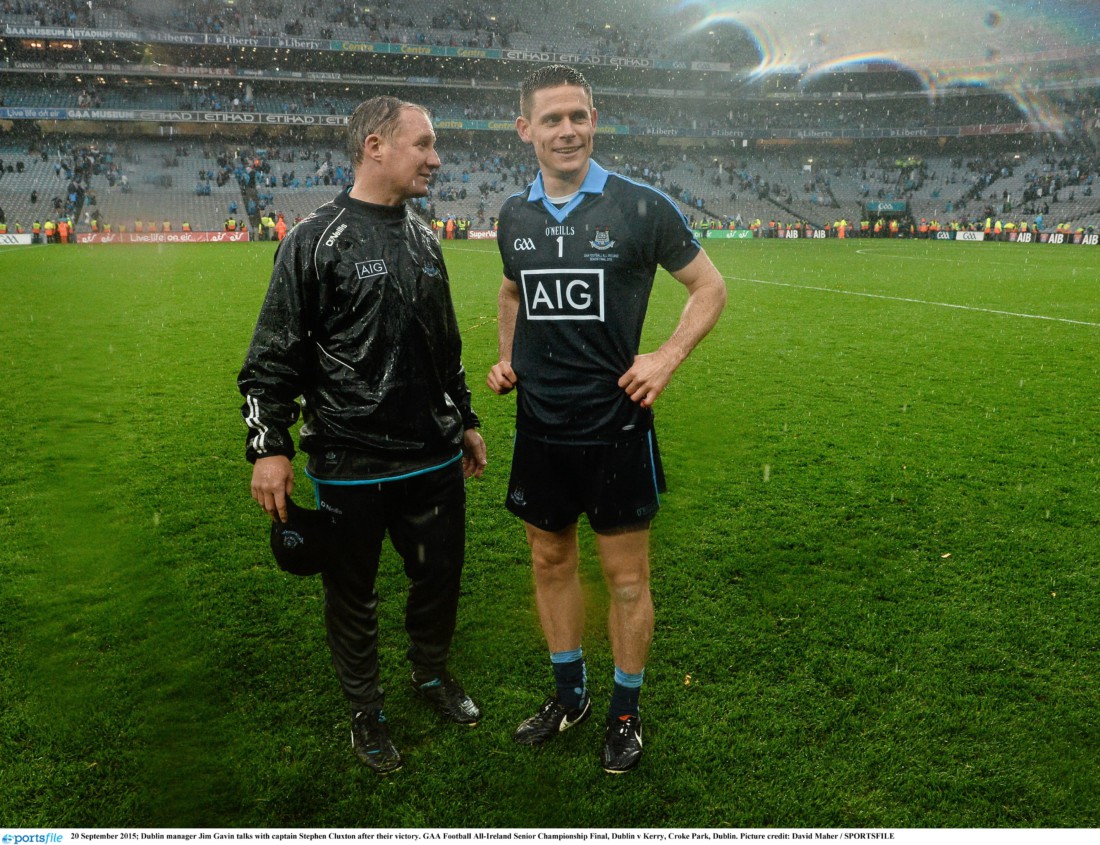FOR the first time in this football championship, we don’t have the automatic expectation of Dublin steamrolling their opposition.
Mayo’s final heartbreaks have been well documented. Sometimes they’ve been beaten by better teams. Sometimes they’ve done a very good job of beating themselves. Like the time they scored two own goals in the opening half of the drawn 2016 final. They’ve gone to replays, have dealt with sendings-off and have several times only lost by a point. In the meantime, they’ve watched the Meaths, Kerrys and Dublins claim titlesl.
They’ve dealt with a fanbase that demands so much, who (mostly!) forgives them when they fall at that final hurdle. That’s the thing about love. Even when the person you love does the unforgiveable, you take them back. Like when Dublin’s John Small was already leaving the field on a red card but Donal Vaughan had to leave with him on a red as well, as for some reason he couldn’t help but give him a bang on the way out the door. Later in the same game, David Clarke made some errors that gave Jim Gavin’s team enough to pounce on and to send the Westerners home empty-handed and hollow-hearted once more.
When people find out that I work as a sport psychologist, inevitably, I’m always asked about Mayo. Or should I say, people give me their opinions about the mentality of the team. As for some reason, we all should know exactly what their state of mind is even though we’ve never set foot in their dressing room. Funnily enough, there’s less thought given to the Dublin mindset. Maybe that’s not Shakespearean enough for us. Not enough tragedy.
Laois captain Kieran Lillis recently described the Dublin machine as a game of Whack-A-Mole. If one is stopped, someone else will pop up and take up the task. They will keep going until the opposition is stopped. Be that in the first quarter or the dying seconds of extra-time. This has two effects on whoever they’re playing. First of all, it’s physically exhausting. Secondly, that relentlessness causes mental fatigue too. That kind of fatigue sows seeds of doubt in the mind. That’s when you start misfiring and making mistakes. And that’s when Dublin scores goals.
Over the last decade, they’ve shifted their mindset from being happy with a win, with never being fully satisfied with a performance. Even when they’ve beaten a team out the gate, you can see them berating themselves if they miss an opportunity and talking each other up like it’s in the melting pot. Lads on the bench seem to have accepted this mindset too.
In Bernard Brogan’s recent book, he details his deep disappointment when he didn’t make the team bus, yet he made sure those who had a precious seat got a good training session by competing against them whole-heartedly. It’s never about the person, it’s about the team. It’s always about the team. Granted, they are aided by having some of the best footballers ever to grace the sky blue jersey, but every ‘big’ county in Ireland has a few of these players but no team has managed to get the best out of them like the way Dublin has.
A lot of the work I do with athletes and teams is training their minds to deal with this match fatigue. Try concentrating 100 percent on one thing for 70 minutes. It’s really hard. Imagine instead of concentrating on one thing, you’re focusing on a match and the hundreds of things happening all over the place, all of the time. While you’re exhausted. The legs have been run off you, the hits have been intense, and your lungs are about to fall out of your chest. It’s not easy, but Dublin have figured out how to do it.
Sport psychologist Anne Marie Kennedy worked with Jim Gavin to help get them to that point. She told me, “Jim Gavin realised that mental fortitude was going to be key if Dublin were to become the best performing team in the country. Together we built a programme to develop not only a resilient and responsive mindset, but also the skillset to take it on to the pitch and into performance. This work was not an add-on. It was an integral piece of the performance puzzle that we worked tirelessly on and battle-tested over several seasons. We trained composure, being present, being responsive and adaptable. We didn’t leave any psychological components to chance.” Yet another example of how integrating a qualified sport psychologist into your backroom team does yield results, if given the time to bed in.
Meanwhile, Mayo have to approach this game with the weight of their history upon them. Unless they’ve figured out how to deal with that, that’s a burden on their minds before they even begin. And they need Dublin to be burdened with complacency, which just doesn’t happen anymore.
However, Mayo won’t have the burden of a crowd, which may ease the pressure. Or make the voice of doubt a bit louder in their heads. They need to realise that Dublin aren’t playing against them. Dublin are playing against themselves and the standards they set for themselves.
They really don’t care who they’re playing, whereas too many of us care too much when we take on the Dubs. No better team to disrupt than Mayo. They looked to be finished in Newbridge in 2018, yet here they are again.
Can they do it? Stranger things have happened this year. One thing’s for sure. This game will be won in the mind.
Receive quality journalism wherever you are, on any device. Keep up to date from the comfort of your own home with a digital subscription.
Any time | Any place | Anywhere












